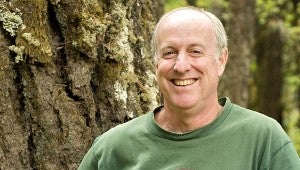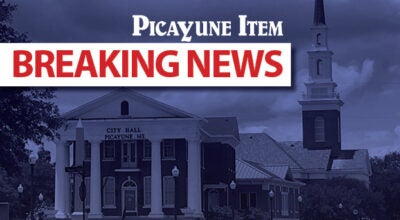Dr. Doug Tallamy to give lecture at Crosby Library
Published 7:00 am Friday, March 7, 2014

Bringing nature home: Dr. Doug Tallamy will give a lecture at Crosby library on Saturday, March 15.
Photo submitted
As the 2014 keynote speaker of the Crosby Arboretum Lecture Series, Dr. Doug Tallamy, author of “Bringing Nature Home,” will speak at the Margaret Reed Crosby Memorial Library on Saturday, March 15, from 10 to 11:30 a.m. on the importance of designing landscapes with native plants and the consequences to the ecosystem, for failing to use them.
Tallamy is the Professor and Chair of Etomology and Wildlife Ecology at the University of Delaware.
“Dr. Tallamy is someone who is very much in demand and a passionate speaker,” Crosby Arboretum Director Patricia Drackett said. “I traveled to see him speak at a regional native plant conference in July. I was bowled over by his presentation.”
Drackett said Tallemy is a good fit with the philosophy of the Arboretum, because it is unique in being founded upon ecologic principles and the region’s native plants.
Tallamy described his mission as one of presenting facts and potential outcomes or consequences.
“I am trying to convince people that the landscapes they own matter,” Tallamy said. “Plants are more than decorations; they are part of a greater ecosystem.”
One of the most important roles of plants is their role in the food web which supports the food chain for our wildlife, Tallamy said. If people choose plants from outside of local food webs, they will not attract insects because the local insects cannot eat them. If insects are unable to eat landscape plants, the birds that eat the insects will have no food source and the bird population will decline.
Tallamy said many people view insects negatively, but left alone to be part of nature’s food web, the birds will keep them in check. It takes a tremendous amount of caterpillars, from between 6,000 and 9,000 support a brood of chickadees. With no birds to eat the caterpillars, plant life will suffer.
“Basically, if we continue to plant alien plants, that are toxic to insects, we could very well witness extinction on a scale that exceeds what occurred when a meteor struck the Yucatan peninsula at the end of the Crustaceous period.”
There is another option, Tallamy says. By using native plants that have evolved with local animal communities as the foundation for landscapes, we may be able to save much of our biodiversity from extinction.
“In essence, we will for the first time coexist with nature, rather than compete with it,” he said.
Reservations are required and admission is $5. Call 601-799-2311 to register.



